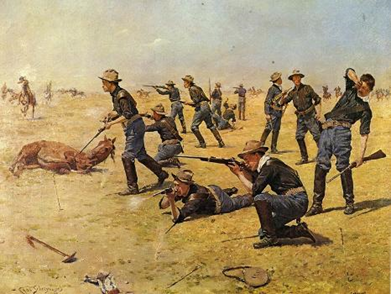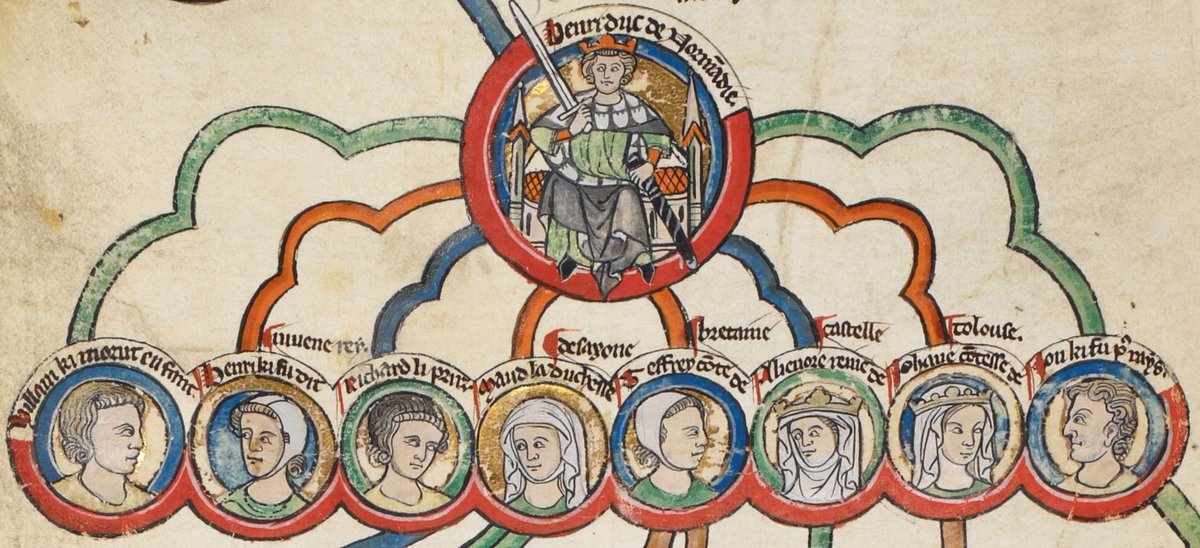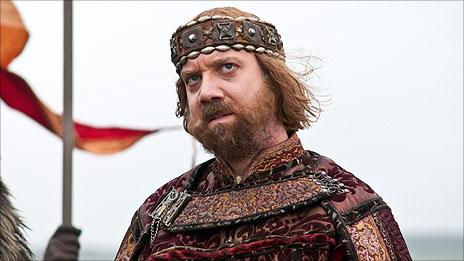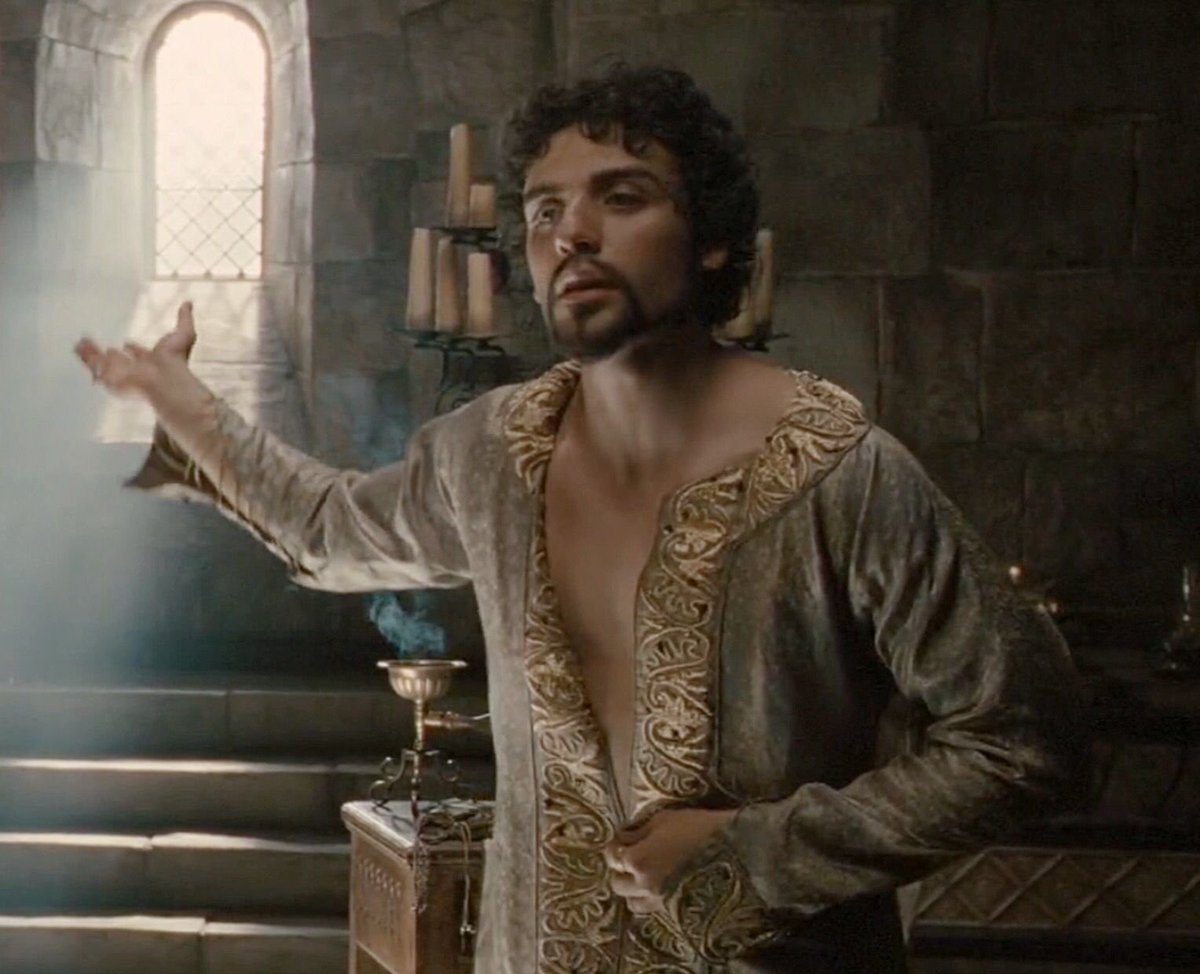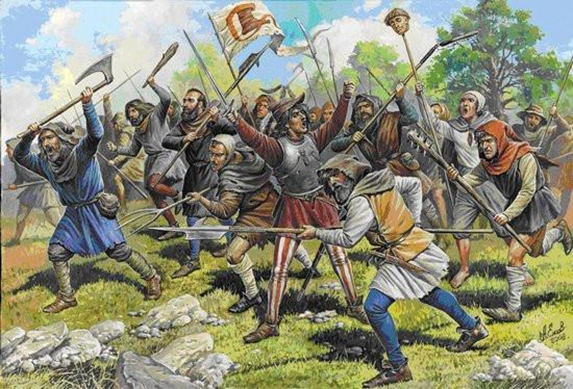We often outsource tasks we find distasteful as a benefit of generational success to focus on more critical tasks. We must however be careful what we hand off. If we stop doing the hard things that made us great, we are bound for slow death. Like at the Battle of Civitate in 1053 

1/ By the 11th Century, more than five hundred years after the fall of the Western Roman Empire, their former lands had started to re-establish itself into some semblance of power with the formation of the Holy Roman Empire. 

2/ The new Germany based HRE controlled most of Northern Italy while the Byzantines controlled part of the south. In between stood a motley collection of unorganized Italians at the core of what was once Rome. 

3/ Despite their shared heritage as part of the fearsome Roman Legions, these modern Italians were not particularly skilled at war.
Sensing an opportunity, battle hardened Normans, always looking for blood and booty, began to arrive on the shores of Italy.
Sensing an opportunity, battle hardened Normans, always looking for blood and booty, began to arrive on the shores of Italy.

4/ They were immediately put to work. Hired as mercenaries by the HRE to fight the Byzantines, the Byzantines to fight the HRE, and the Italian nobles to fight one another, the Normans quickly became the soldiers to hire if you wanted to do some serious fighting. 

5/ Even the elite Varangian Guard who had served as the Byzantine Emperor's bodyguard for half a millennia had trouble against them. Hearing of the rewards of war, Normans from all over began flocking to Italy, often fighting on both sides of battles. 

6/ As the decades of war went on, the Normans began to acquire lands and titles within Italy. Sensing the danger, and tired of Normans who decided it was easier to loot and conquer lands than serve as mercenaries, Pope Leo IX (cousin of the Holy Roman Emperor) decided to act. 

7/ Forging and alliance between the HRE, the Byzantines and the Italian lords, Pope Leo IX hoped to crush the Norman menace once and for all. Except for one thing. The Italians had forgotten what it took to be warriors. 



8/ Knowing the soft Italians needed help, Leo IX begged his cousin for support, who obliged and sent a force of Swabian (south-west German) mercenaries, with their fearsome two hand swords, known to cut a man in half from “head to leg”. Again, Italy had to outsource its defense. 

9/ The Pope’s plan was to link up with a Byzantine naval force, and present a unified front to the Norman horde. They would never make it. The Normans quickly gathered what army they could, hunted down and cut off the 6,000 man Papal army outside the village of Civitate. 

10/ The Norman army, starving and hastily assembled, were about half as many. To make matters worse, the Norman soldiers were deeply religious, and the idea of facing the Pope in open battle shook them to their core. The Normans attempted to make peace, but were laughed off. 

11/ With no options for peace left, the Normans decided to just get at it. Looking across the field, the Norman’s quickly picked their Huckleberry, their formers bosses, the unorganized and poorly equipped Italians who had hired them for decades to do their fighting. 

12/ Despite outnumbered 4:1 veteran Norman cavalry thundered across the field and slammed into the Italians. The Italians may have needed lessons on how to fight on a battlefield, but they needed no lesson on how to die on one. 

13/ The Normans crushed the Italian infantry on the right, who either fled the field or died on it. The Swabian professionals in the Pope’s center held against the enemy wave. Not able to use their massive swords as effectively on horseback, they dismounted and fought on foot.
14/ Despite knowing the battle was lost and the horses were their only means of escape and survival, the Swabians stood to the last man for their Pope at Civitate, cleaving Normans to death before being overrun. 

15/ The Pope, who had watched his army die from behind the safety of the city walls was thrown out the gate by the citizenry, who feared his presence would invite a Norman siege. The smaller but hardened Normans who had not lost their edge, had defeated their former masters.
16/ Americans outsource all kinds of things. We outsource things like manufacturing and coding to foreign nations, we outsource cleaning our homes and mowing our lawns to foreigners in the United States, and we outsource things like educating our children to other Americans. 

17/ It isn’t feasible for everyone to do everything all the time. Outsourcing tasks is a benefit of a rich and powerful society, which needs to focus its attention on remaining rich and powerful. The challenge of outsourcing is the ever dangerous slippery slope.
18/ With no one to limit it, with no one to consider what should and shouldn’t be done domestically we are flying blind. Does everything need to be made here? I personally don’t care if a plastic bucket is made in Omaha or in Haiphong. 

19/ But I do care where medicine, critical technology, and steel are made. For decades Middle Class Americans were sold a promise from both sides. That outsourcing manufacturing to cheaper countries would lead to cheaper products for us. 

20/ Americans would get education and support could move into service, creative, or tech related jobs and everyone wins. Except then those jobs were the next to be exported or even worse, given to one of the 65,000 H1B visa holders coming into the US every single year. 

21/ The same goes for the military, and violence conducted on behalf of the nation. Since the late 70s that violence has been outsourced, not to barbarians like Rome did, but to professionals. A professional army is easier to send to war than a citizen army. 







22/ It requires neither the consensus of or sacrifice by the people. It is easier to keep deployed for longer, and it benefits the state to limit military training to a small few so as to prevent another Battle of Athens in 1946. 

23/ A national police force is the same. Pushing authority further and further from accountability until we are merely subjects to its power. This is not the path towards freedom our founders set us on, this is the path towards dependence, serfdom and slavery. 

24/ We Americans are responsible for our nation. Our politicians and "leaders" are not. We the people are the ones that forged this country into what it was, and we are the ones who allowed others to start taking that birthright from us. It is time we started taking it back. 

Full disclosure I outsource almost all of my images... @HistoryMarche is a great source and a fun channel to watch.
• • •
Missing some Tweet in this thread? You can try to
force a refresh

 Read on Twitter
Read on Twitter

